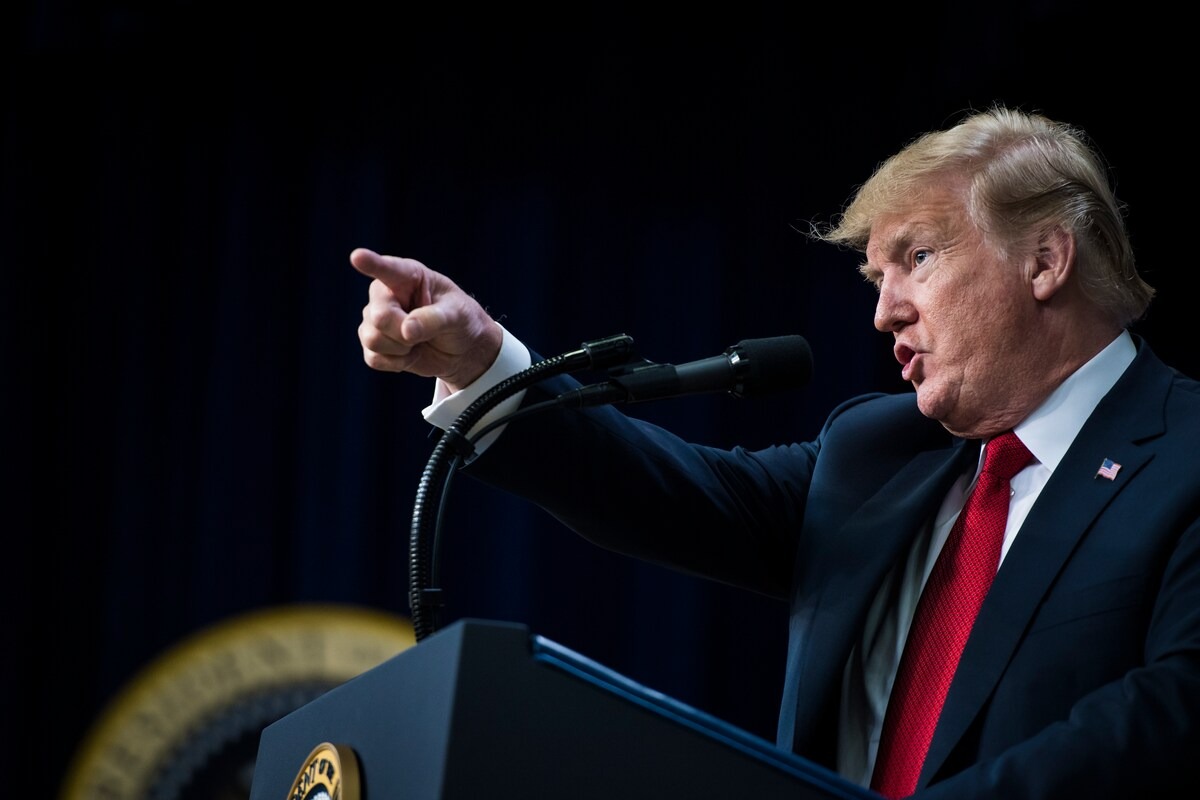 White House press secretary Karoline Leavitt speaks during a news briefing in the James Brady Press Briefing Room at the White House on April 8, 2025, in Washington, D.C.Jabin Botsford / The Washington Post via Getty Images
White House press secretary Karoline Leavitt speaks during a news briefing in the James Brady Press Briefing Room at the White House on April 8, 2025, in Washington, D.C.Jabin Botsford / The Washington Post via Getty Images
White House Press Secretary Karoline Leavitt confirmed on Tuesday, after President Donald Trump’s quip about wanting to “deport” incarcerated U.S. citizens to El Salvador’s notoriously cruel prison system, that the White House has actually been discussing such a policy.
Trump was asked by a reporter on Monday whether he endorsed the idea of sending U.S. citizens to El Salvador, as his administration has already sent hundreds of noncitizens there, mostly immigrants from Venezuela who were living in the U.S. The White House has tried to justify its actions by claiming that those individuals were violent gang members — but an investigation by CBS News found that three-quarters of the people deported had no criminal records at all.
Trump responded positively to the idea of sending currently incarcerated U.S. citizens to El Salvador’s prisons as well.
The president acknowledged that he wasn’t sure whether what he was advocating for was legal.
“I don’t know what the law says on that, but I can’t imagine the law would say anything different,” he said, adding that he viewed the idea as a cost savings measure for the U.S.
Legal experts have noted that such an action would undoubtedly run afoul of the Constitution’s Eighth Amendment, which bars cruel and unusual punishment.
“This is so incredibly illegal that there’s not even a hint of possible way to do it under any circumstances whatsoever,” said Aaron Reichlin-Melnick, a senior fellow at the American Immigration Council. “It violates international law and the U.S. Constitution. Period. End of story.”

On Tuesday, a day after Trump’s initial comments, White House Press Secretary Karoline Leavitt confirmed the administration was pursuing such a policy.
“The president has said if it’s legal, right, if there is a legal pathway to do that, he’s not sure. We are not sure if there is, it’s an idea that he has simply floated and has discussed very publicly as in the effort of transparency,” Leavitt said.
Leavitt also noted that Trump has discussed the idea “quite a few times publicly,” and that he’s “also discussed it privately.”
In conjunction with the administration’s latest actions denying due process rights, such a policy could result in both citizens and noncitizens, with or without criminal prosecution, being deported to foreign prisons, which aren’t subject to U.S. standards like the Eighth Amendment — an outcome Justice Sonia Sotomayor warned about in a recent Supreme Court dissenting opinion.
Within that dissent, Sotomayor stated that the administration’s position in a case involving Kilmar Abrego Garcia, a lawful U.S. resident who was deported to El Salvador without due process, would endanger everyone’s rights — citizens and noncitizens alike.
“The implication of the Government’s position is that not only noncitizens but also United States citizens could be taken off the streets, forced onto planes, and confined to foreign prisons with no opportunity for redress if judicial review is denied unlawfully before removal,” the associate justice wrote. “History is no stranger to such lawless regimes, but this Nation’s system of laws is designed to prevent, not enable, their rise.”


